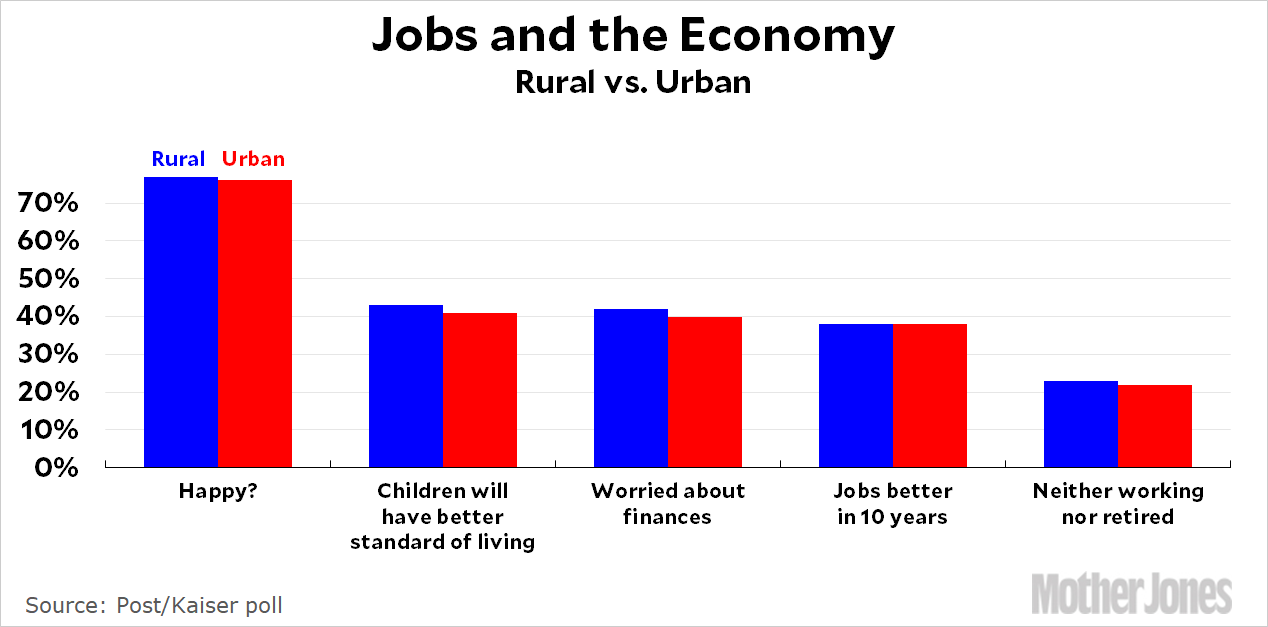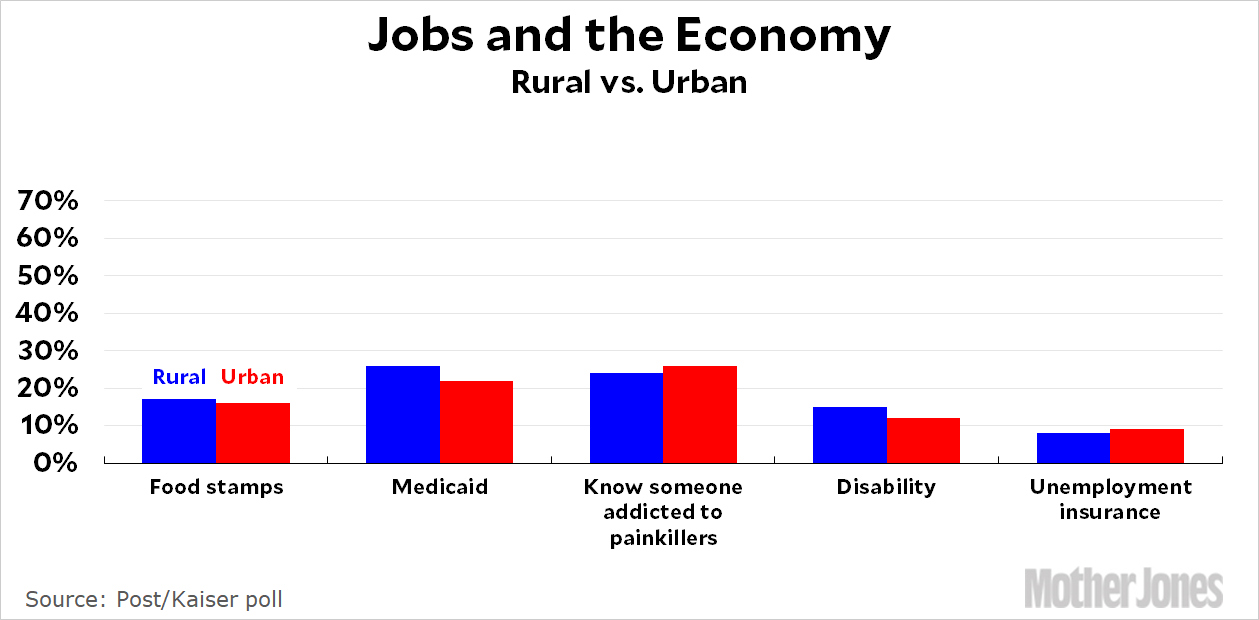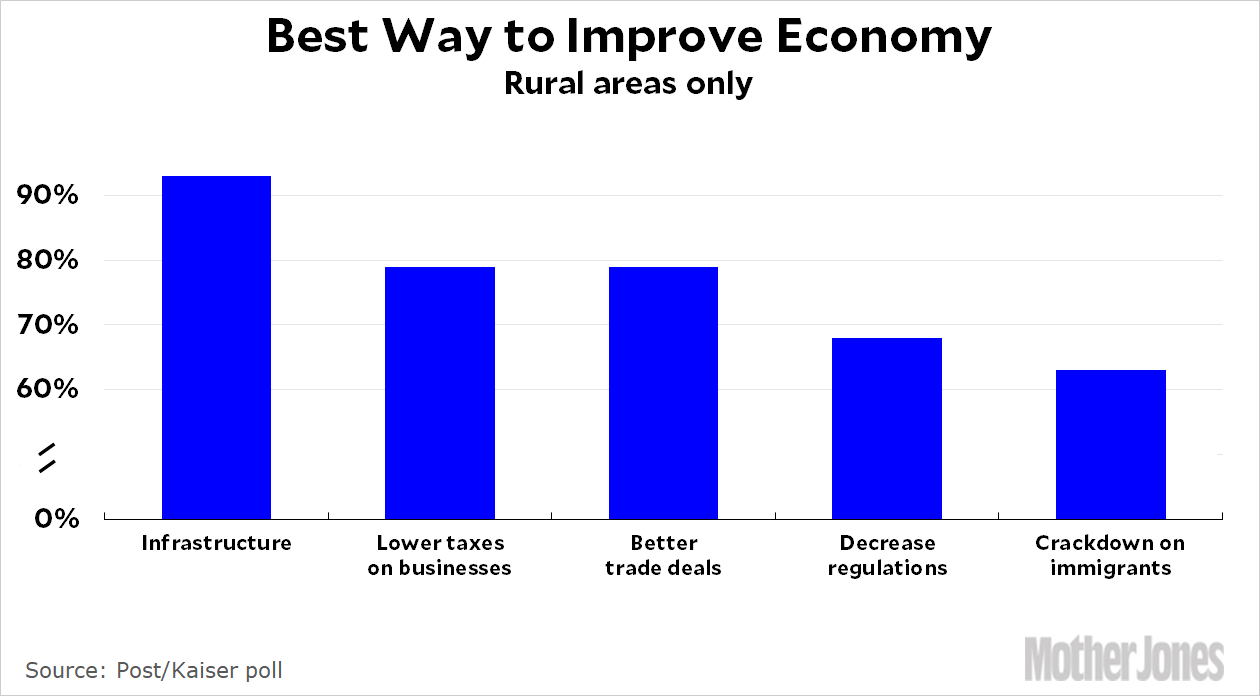The Washington Post and the Kaiser Family Foundation released the results of a pretty interesting poll today. It focuses on the rural-urban divide, and seems to suggest that although people in rural areas are more likely to say that jobs and the economy are a big concern, they actually feel about as positively as urban dwellers. For example, 29 percent of rural folks say their community’s biggest problem is jobs and the economy, vs. only 10 percent for urban folks. About 30 percent say job opportunities are good vs. 50 percent for urbanites.
But then there’s this:

All of these are nearly identical. Overall happiness is the same, the number of unemployed is about the same, and optimism about the future is about the same. This same dynamic plays out elsewhere. In rural areas, 67 percent say their community relies a great deal on government help. But that perception doesn’t match reality:

Asked about their personal situation, only around 20 percent say they’ve relied on government programs—and there’s very little difference between rural and urban areas.
Rural areas are unquestionably poorer than urban areas: at the low end there’s more poverty and at the high end there are fewer rich people. Beyond that, though, the perceptions of rural folks about their communities are out of step with what they report about their personal lives.
There are obvious reasons for this difference between perception and reality. The most obvious one is just related to community size. The Great Recession hit urban and rural areas about the same, but when unemployment rises in a city it’s a diffuse problem that doesn’t necessarily seem related to living in a city. Conversely, when the same thing happens in a small town, it’s probably because a factory laid off 10 percent of its workforce. That’s a punch in the gut that makes you lose faith in your town. Similarly, when someone in a small town decides to move away to look for employment elsewhere, there’s a good chance it’s someone you know. In a city it’s just the guy down the hall that you nodded to every once in a while.
Bottom line: rural areas probably are doing worse than cities on a number of economic metrics. But only a little worse. The big difference is mostly in the perception of just how bad things really are.
And one more thing:

Asked about the most important thing government can do to improve their economy, it’s not immigration crackdowns or better trade deals. It’s infrastructure. That’s what they want.








